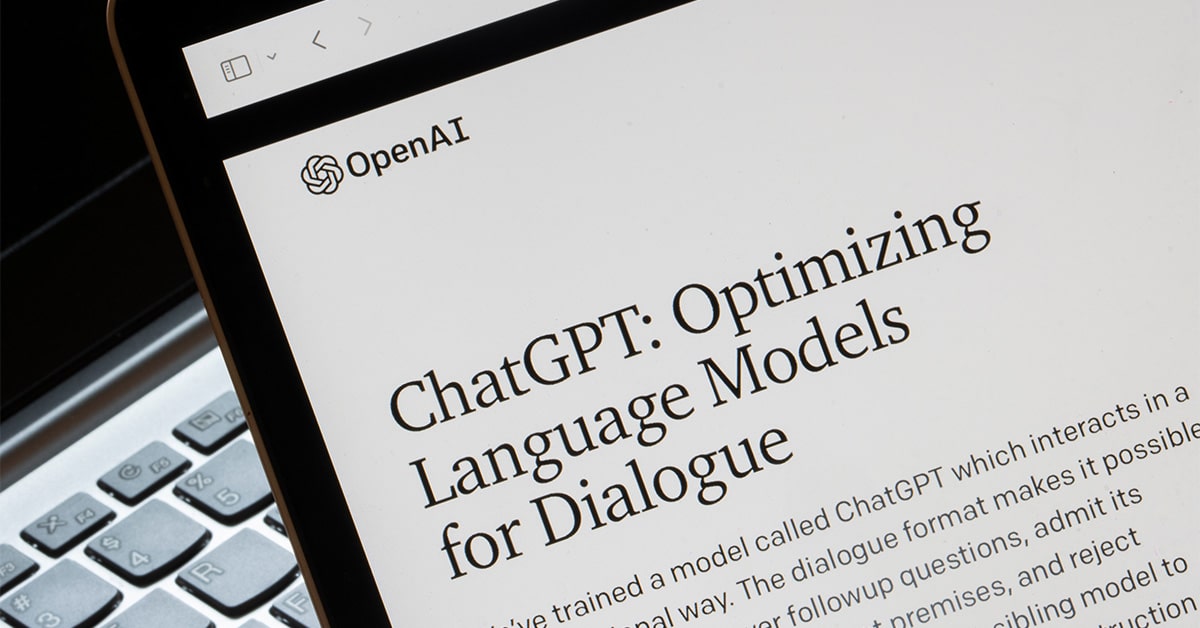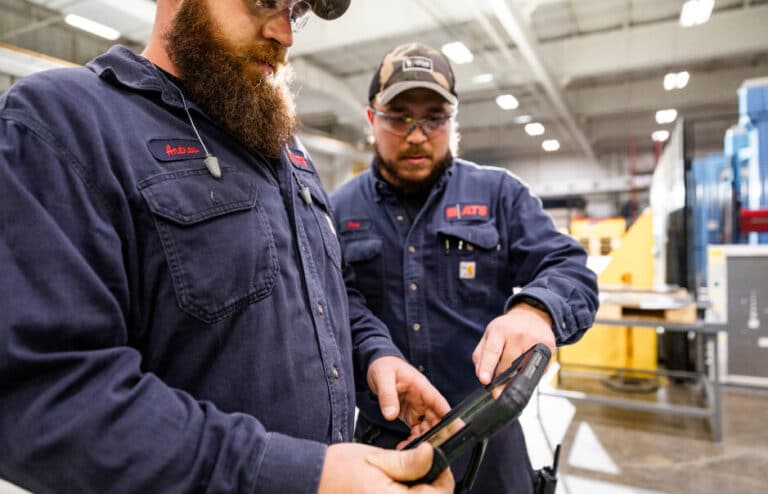ChatGPT is the name for an emerging artificial intelligence (AI) tool with the potential to make a major impact across a number of industries, including manufacturing. This tool is built on the basis of two primary types of artificial intelligence:
- Large language model: Essentially, this means that ChatGPT is “trained” on a massive amount of data in the form of natural language information and is thus able to return its results in a natural language format that is nearly indistinguishable from an actual person creating the response or result.
- Generative AI: A form of large language model, “generative” refers to the capability of the tool to generate acceptable responses to inputs or prompts. Depending on the tool in use, this response may be text, images, sounds or music, and more. “GPT” stands, in fact, for “generative pre-trained transformer.”
These definitions are an extremely high-level overview of the complex technology underlying ChatGPT. With this understanding of the principles, we will take a closer look at the ways in which this type of AI is poised to impact the manufacturing industry, including analytics modeling, reporting and communications, maintenance support and more.
Potential uses for ChatGPT in manufacturing

When examining potential uses of ChatGPT in manufacturing, it is important to understand exactly how ChatGPT works. As a chatbot, ChatGPT operates on a prompt basis, responding to inputs provided by a user. This differs from other forms of AI that may already be in use in the facility or that may be similarly gaining footholds, such as those that might be used in operational processes like predictive maintenance.
Potential ChatGPT manufacturing uses in this context include:
- Planning and scheduling: ChatGPT can be used to create maintenance schedules and to plan resource usage. One of the main strengths of ChatGPT is that it can refine its responses as it receives further input, so the user can start by requesting a basic maintenance schedule and can then fine-tune it by providing ChatGPT with more information about specific requirements.
- Analysis: By providing input of equipment performance data and quality control metrics, ChatGPT can provide further analytics regarding production and output, helping to inform decision-making and save time with operational management functions.
- Communication: ChatGPT can synthesize performance data, including problem scenarios, to produce automated internal communications and alerts that would otherwise take time to manually craft. With ChatGPT, information can be disseminated that much more quickly. ChatGPT also has the potential to act as a helpdesk-type chatbot, helping to provide service and support information for external customer and internal personnel alike.
- ChatGPT in supply chain management: ChatGPT supply chain applications can draw in information from user inputs and provide supply chain management efficiencies in order processing, inventory management, logistics planning, supplier management and customer service for supply chain partners, streamlining inventory and ordering processes and creating efficiencies in the supply chain function.
Benefits, challenges & limitations
Although we tend to look toward the benefits of any new technology, organizations should also consider the risks associated with technology that is so new and still evolving. Here, we will examine the potential benefits of ChatGPT and similar AI implementations, along with the risks and challenges that come along with this new technology.
Benefits
- Productivity: ChatGPT can create efficiencies in areas that often require extensive labor to create value, including communications, analytics and resource planning.
- Reduced costs: ChatGPT can help to identify areas where resources and efforts can be streamlined, contributing to lower overall costs.
- Improved quality assurance: With ChatGPT support, QA personnel and processes can be more effective in identifying potential problems with output and can make decisions more quickly.
- Better customer relationships: ChatGPT can help to identify customers that need the most attention, can assist in support processes and can help to direct customer service resources where they are needed most.
Challenges & concerns
- Cybersecurity: Because ChatGPT operates on a cloud model, queries and questions sent through the ChatGPT prompt are currently subject to cybersecurity risks. Any business using ChatGPT should be wary of transmitting proprietary or sensitive information until enterprise-level security is available for the application.
- Integration into workflows/processes: AI and ChatGPT represent a major shift in workflows and processes and cannot be integrated overnight. Organizations looking to integrate ChatGPT into their processes should plan for comprehensive onboarding and adoption as part of the overall process.
Limitations
- Access to information: ChatGPT is “trained” with information — largely, publicly available information from the Internet. As with any AI, the ChatGPT output is only as useful as the information that it draws from, and the technology that it uses to synthesize that information. For unique, detailed applications such as those found in manufacturing, ChatGPT may not always prove useful or accurate.
- Real-world experience: ChatGPT cannot replace real-world experience or the subtle aspects of “gut instinct” that technicians with decades of experience have.
- Bias: AI has, in the past, been proven to show bias based on the data from which it is synthesizing its results. AI can be further “trained” to attenuate the effects of this bias, but this requires further manual effort and understanding of the negative impact of such bias.
What does the future hold?
While AI in manufacturing is new and evolving, its impact and availability will only continue to increase, and it will become more powerful and useful for manufacturers. ChatGPT should remain in the conversation as a potential tool for manufacturers to improve efficiency and productivity.


